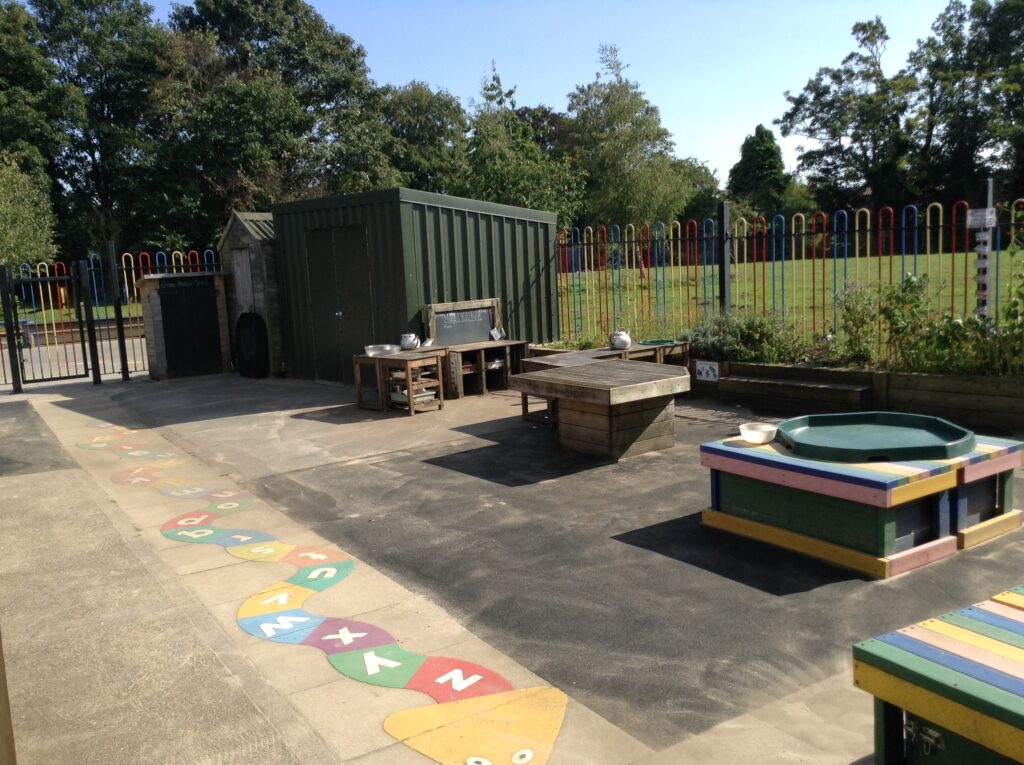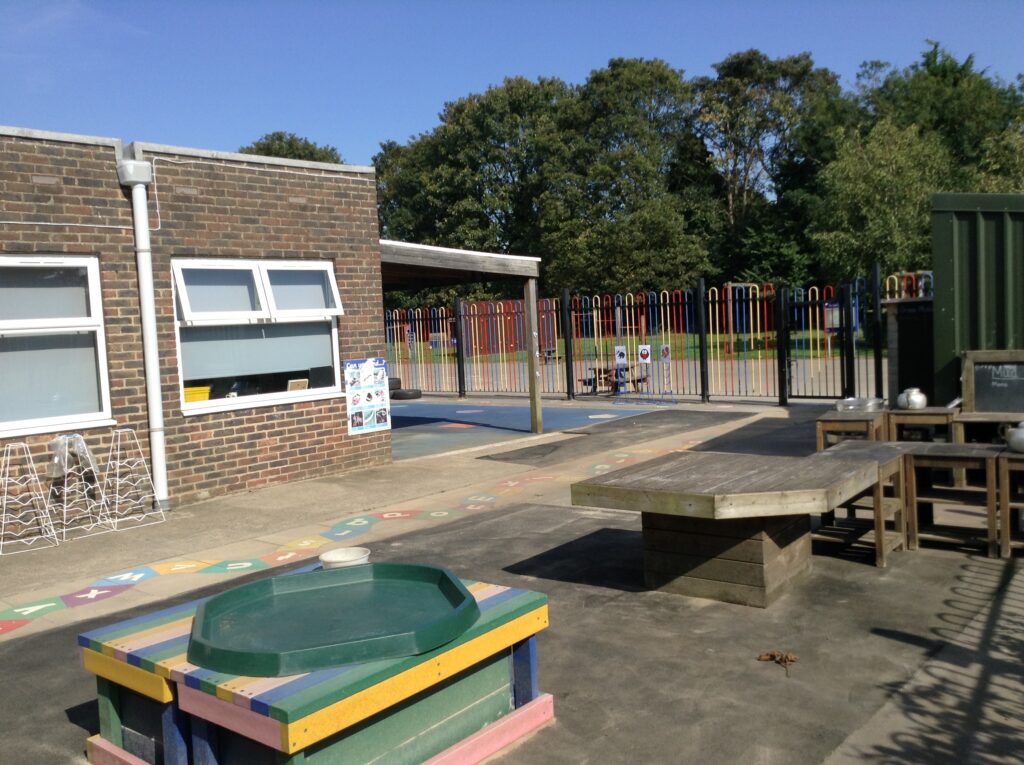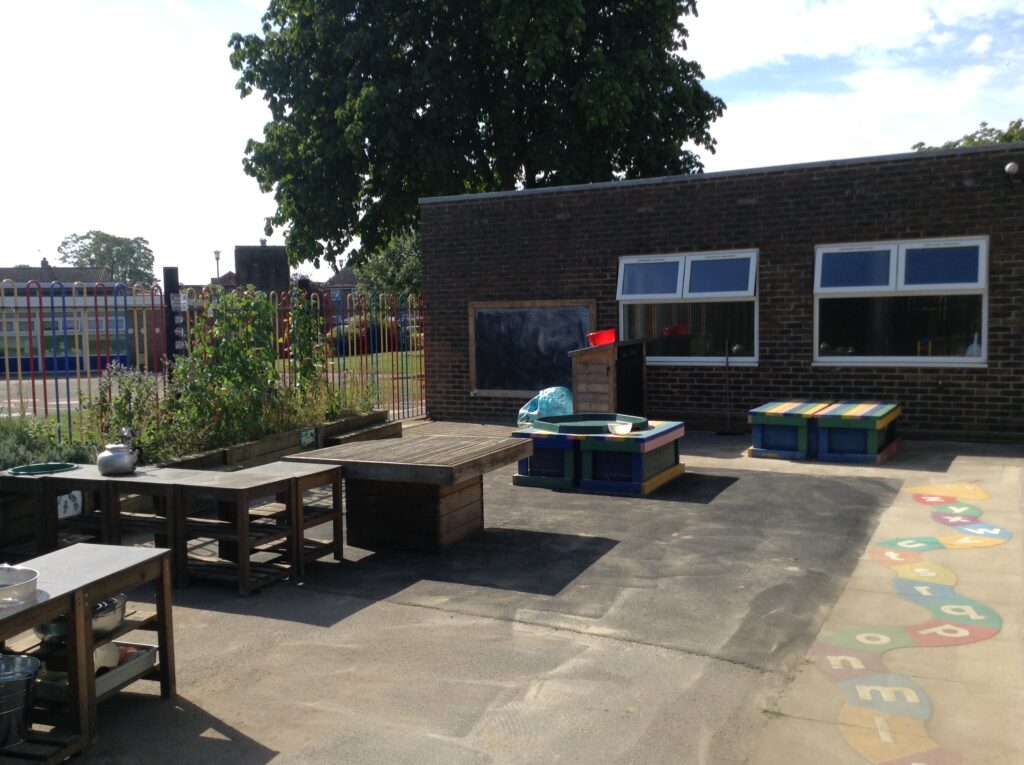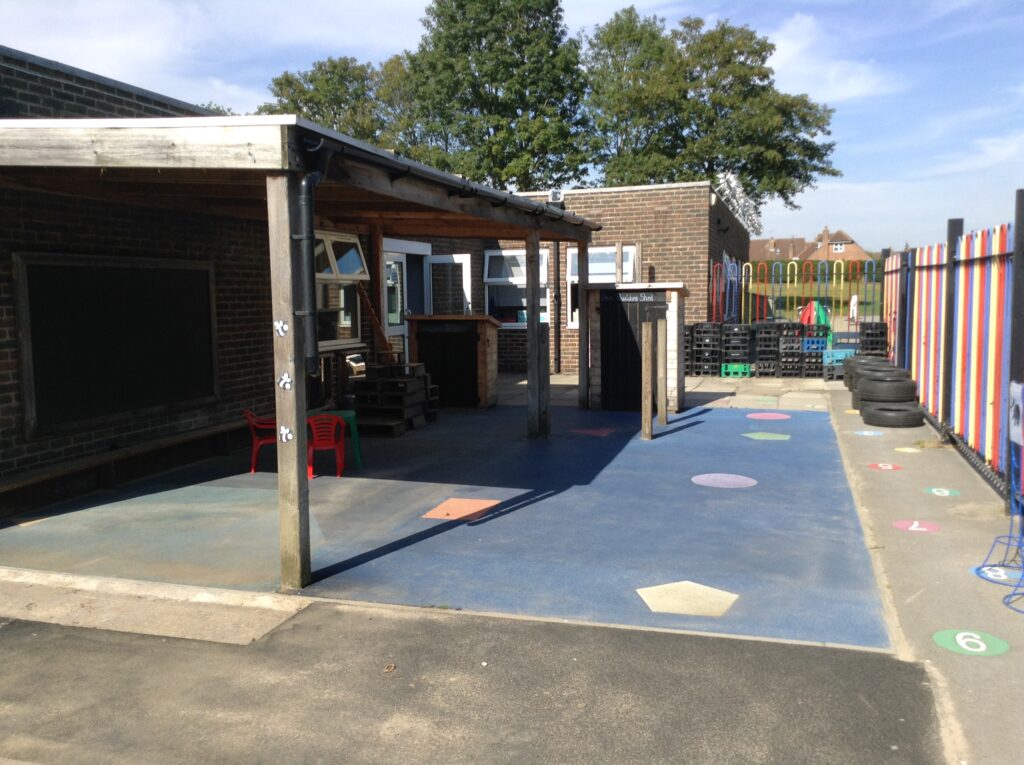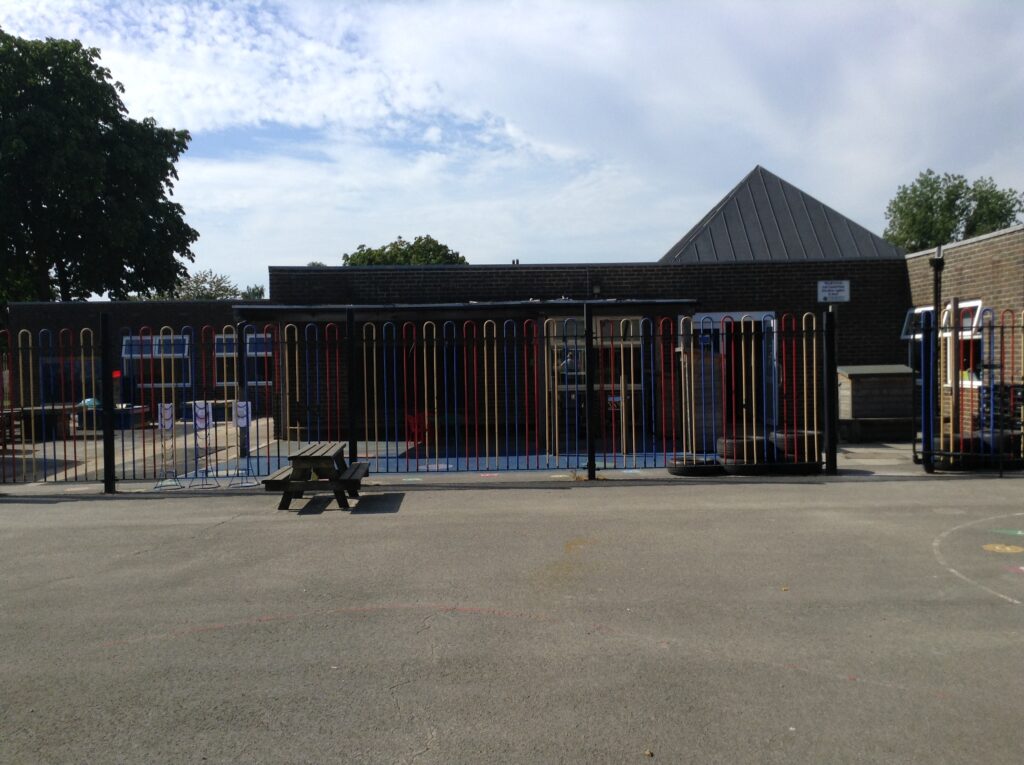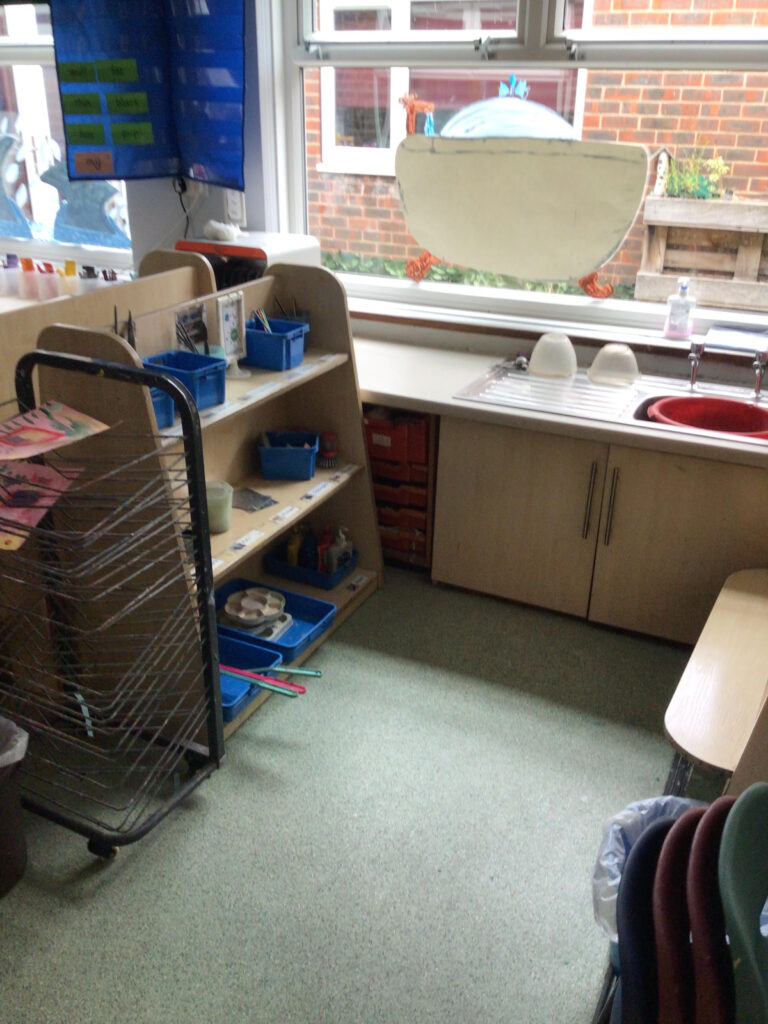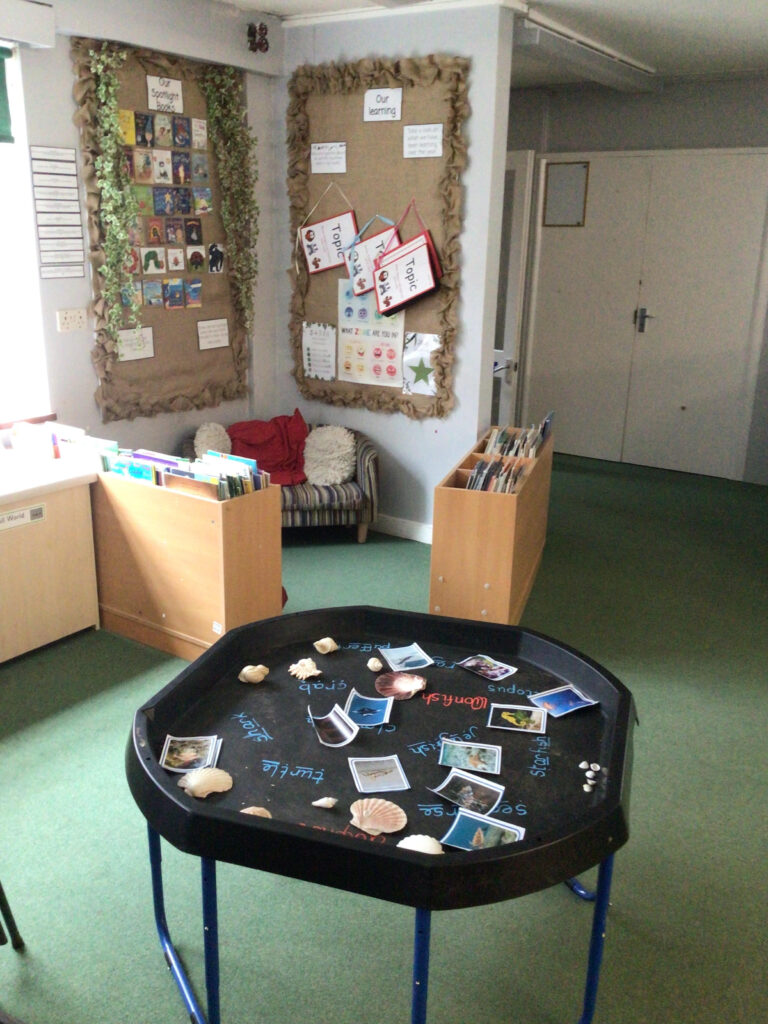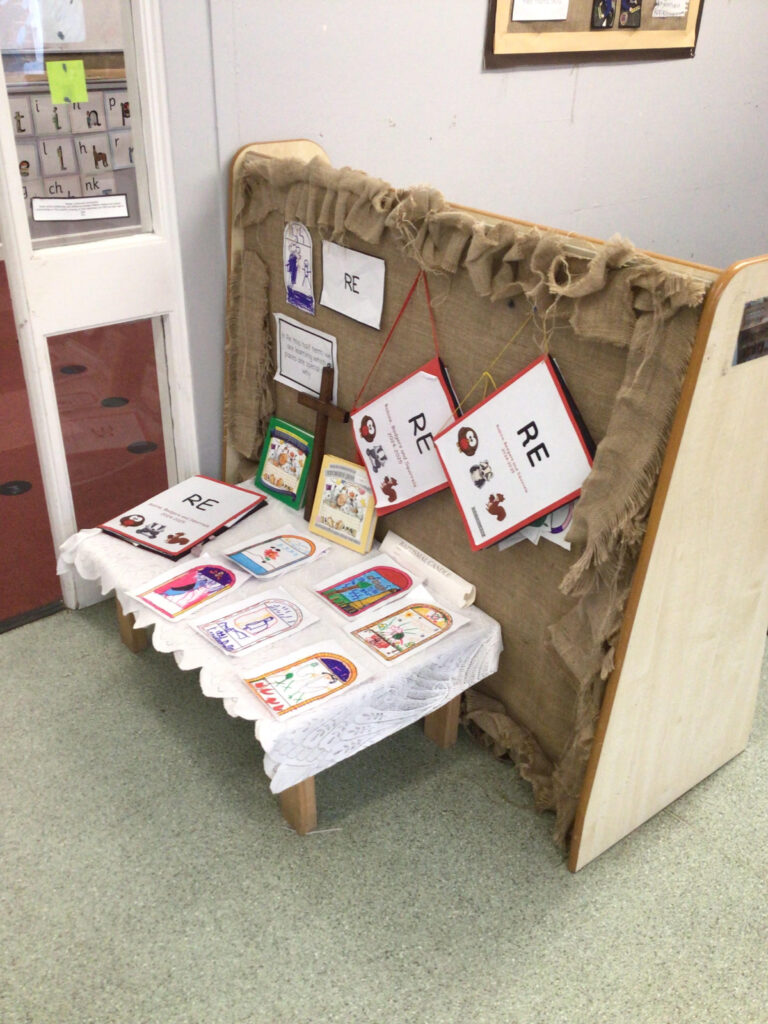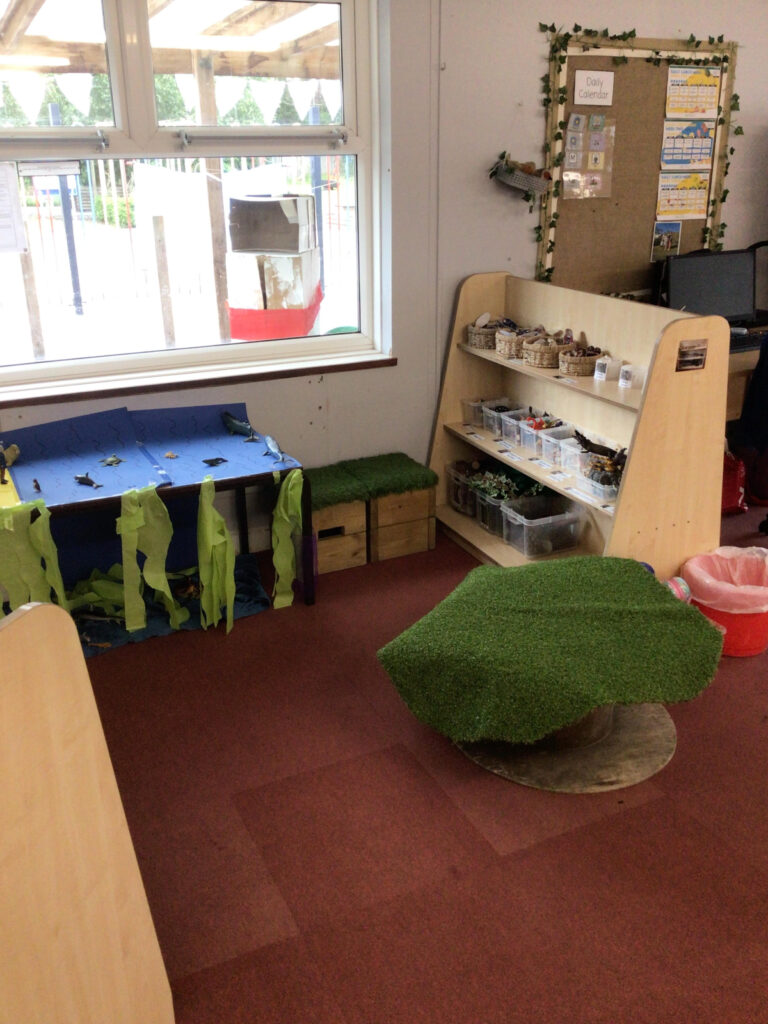We have three classes in reception that work as a unit. Your child will have a class name and a class teacher but the majority of our day we are together, learning in our environment. We have carpet sessions throughout the day were we are taught specific lessons, such as Read, Write Inc (our phonics programme) White Rose Maths, Mastering Number, and topic which includes RE, geography, history, music and PSHE.
Our unit has lots of exciting opportunities for the children to explore, investigate and consolidate lots of skills needed to enhance their learning. We have different areas of the provision where children can select their own activities to develop their knowledge and skills. These range from a craft area, to role play areas, a maths area, sand and water, and many more.
We have an outdoor area specifically for Early Years which can be accessed at all times of the day, whatever the weather, this includes water play, sand, a mud kitchen, den building as well as writing and maths.
We have termly topics in reception but we also follow the children’s interests, this helps the children to be involved in their learning and give them opportunities to enhance their skills doing what they love.
Class Teachers
Robins- Mrs King
Squirrels- Mrs Millington/ Mrs Skilbeck
Badgers- Mr Hobson
Class Support Staff
Robins- Mrs Smith
Squirrels- Mrs Melling
Badgers- Miss MacKenzie
What to bring to school every day:
- Water bottle – please bring an empty water bottle with your child’s name on.
- A school book bag – these fit into their drawers easily and the children will bring home any necessary letters from school or work they have created during the day.
- Suitable coat for the weather- the children access outside activities whatever the weather.
- Suitable hat for the weather- woolly hat in winter, sun hat in summer.
Reception parents we have created a PADLET with information to support your child transitionining into school.
All children should bring home a reading book daily – we ask that a parent /carer spend time listening to their child read, and read to their child. Children may also bring home a choice book which is not matched to their reading ability and can be read with / to them.
